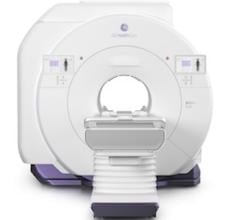
Greg Freiherr has reported on developments in radiology since 1983. He runs the consulting service, The Freiherr Group.
Is There A Centaur In Your Future?

I miss carbon paper. I get that it was messy. The imprint of characters was incomplete, no matter how hard I struck the keys. But its presence between two sheets of paper — original and carbon copy — was ... comforting. Physically putting it there and scrolling the carbon sandwich into place would get me something.
It was a mechanical exertion easily within my ability. The result may have been minimally effective. But it was effective.
Alas, carbon paper is gone. As is the manual typewriter. And white out. (I loved white out.) Gone too are the electric typewriter and its backspace, correcting cartridge.
They are not the only casualties of progress: my beloved public phone booth; the answering machine; the home phone; the phone itself. (What remains is a wireless, portable electronic communications device for creating, sending and receiving texts and pictures. Nobody uses the “phone” to talk anymore — unless the talking is accompanied by video (e.g., Skype, Facetime).
What will go next? And how will its fall preceded others as have the domino-like staples of my once modern life?
Where You Won’t Go
Dr. Seuss used to speak to my imagination. So thrilled was I by the enduring concept of Seuss-like exploration that I took “Oh, The Places You’ll Go!” out of deep storage to show one of my sons on his college graduation. It was comforting to think Seuss was still relevant! But was he? Is he?
Machines are exploring the universe. They have been for a long time. Viking, Voyager, Cassini. Neil Armstrong and Buzz Aldrin were aberrations of the Cold War.
From algorithms that prioritize scans to ones that offer expert advice about interpretation, artificial intelligence is coming to radiology. Does that mean smart machines coming for radiologists? Will they take over? Will they make radiologists obsolete?
The worry that machines will replace humans is very old hat. Twenty years ago, on May 11, 1997, IBM’s Deep Blue defeated chess grandmaster Garry Kasparov. But human chess masters didn’t go away. In fact, you could argue that the opposite has happened.
Computer programs for Apple and Windows operating systems have “taught” people to play the game. Newbies who might not have otherwise joined in are playing the game. Computer sparring provides practice. People have gotten better.
Computers have even “evolved” human play through the ne’er before creation of computer-human chess teams, sometimes referred to as a “centaur chess player.” Could a similar future be in store for radiologists?
Gaming The Answer
Chess was once thought to require human intelligence. This is why developers of AI targeted this game. But, since Deep Blue’s victory, chess has been replaced by Go as the common denominator of what some modern day disciples of Alan Turing believe make people unique. Not surprisingly, last year, Google’s AI game-player, called AlphaGo, defeated a human champion of Go, which was invented in China some 3,000 years ago. Don’t be shocked. Or dismayed.
The problem is not that computers are eclipsing humans. It is that we are confusing the signs of
intelligence with intelligence itself — the savant
with the genius.
The ability of machines to master specific tasks and do them in savant-like fashion underscores the unsung value of AI for humanity: the ability of AI machines to master specific tasks through unrelenting effort. Their drive to succeed comes not from ambition but from human overseers pushing soft-wired buttons.
AI is like a dog trying to rip a play toy from the hand of its master. Its focus is, shall we say, limited. As such, it could be a godsend to radiology.
AI could be the strong, if not better half, of a computer-human pairing that encourages physicians to take up radiology as a specialty, accelerates their learning, then serves as a dedicated — and very aloof and non-threatening — sidekick that raises human performance through expert advice made available for the interpretation of routine cases.
Maybe my belief in such a future is rooted in the history of mankind to evolve. Maybe it’s an emotional repudiation of the singularity, which some of the great thinkers of our time (e.g., Hawking, Musk, Gates) say will mark the demise of humanity.
Maybe it’s just my deeply engrained love of carbon-based life.


 February 20, 2026
February 20, 2026 









